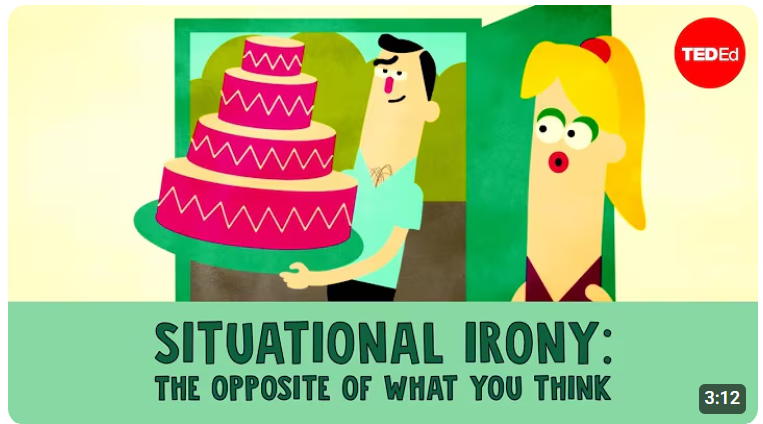Watch the video
Irony is one of the most subtle and clever ways we use language and also one of the most misunderstood. In this TED‑Ed video, you’ll explore situational irony, where the outcome is the exact opposite of what you expect. Sounds confusing? Watch the video first:
What is situational
irony?
Situational irony happens when there is a contrast
between expectations and reality. In other words, something completely
unexpected (and usually funny or surprising) happens — not just by chance, but
in a way that feels deliberately opposite.
For example:
- A
fire station burns down.
- A
police officer gets arrested.
- A
marriage counselor files for divorce.
These aren’t just coincidences, they’re ironic because we assume the opposite would happen!
Vocabulary to remember
|
Expression |
Meaning |
Example |
|
Irony |
An unexpected opposite |
A traffic cop gets a speeding ticket. |
|
Expectation |
What we think will happen |
We expect a chef to enjoy cooking. |
|
Outcome |
What actually happens |
The chef hates cooking at home. |
|
Twist |
A surprising change |
The story had a hilarious twist. |
|
Contradiction |
A direct opposite |
A fitness coach addicted to junk food. |
British vs. Spanish
humour
British humour often uses irony and understatement, they
say things without saying them directly. In Spanish, humour tends to be
more direct and exaggerated. This is why ironic jokes may sound
“too soft” or “not funny enough” to Spanish speakers… unless you get the hidden
meaning.
Your turn!
Tell us:
- Why
is it ironic?
- Would
it be funny in your culture?
- Can
you think of a similar example in Spanish?
